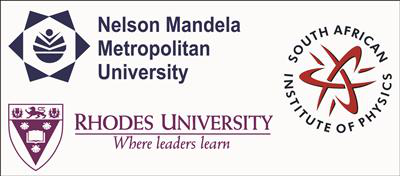Speaker
Apply to be<br> considered for a student <br> award (Yes / No)?
Yes
Main supervisor (name and email)<br>and his / her institution
Oleg Smirnov
o.smirnov@ru.ac.za
SKA
Please indicate whether<br>this abstract may be<br>published online<br>(Yes / No)
No
Abstract content <br> (Max 300 words)<br><a href="http://events.saip.org.za/getFile.py/access?resId=0&materialId=0&confId=34" target="_blank">Formatting &<br>Special chars</a>
The improved sensitivity of SKA pathfinder and precursor instruments poses interesting calibration and imaging challenges. The higher sensitivity means that spurious emission induced by the calibration process - which has been hidden below the noise with less sensitive instruments – may limit the dynamic range capabilities of these instruments. Experience with the JVLA and WSRT instruments suggest that this spurious emission is generally characteristic of the observing instrument. In this work, we aim to exploit our knowledge of the instrument (e.g, the point spread function and the primary beam) in an attempt to find a reliable technique that distinguishes between astrophysical and spurious emission. Assuming that the noise in a radio map is symmetric about zero and that astrophysical emission is positive, other work has shown that noise artefacts can be distinguished from astrophysical emission by studying the properties of high negative peaks. In our case, we know that calibration artefacts tend to the follow the point spread function, which while not symmetric about zero, may have a quasi-symmetry if one considers the first few successive peaks and troughs of the sidelobes. With our implementation of the technique described in the work of Serra et al., we have been able to correctly classify spurious emission using JVLA data. Using simulated JVLA data, we have studied the impact of SNR, source position (w.r.t the pointing centre), and length of observation on our ability to classify calibration artefacts using this technique.
Would you like to <br> submit a short paper <br> for the Conference <br> Proceedings (Yes / No)?
No
Level for award<br> (Hons, MSc, <br> PhD, N/A)?
MSc

